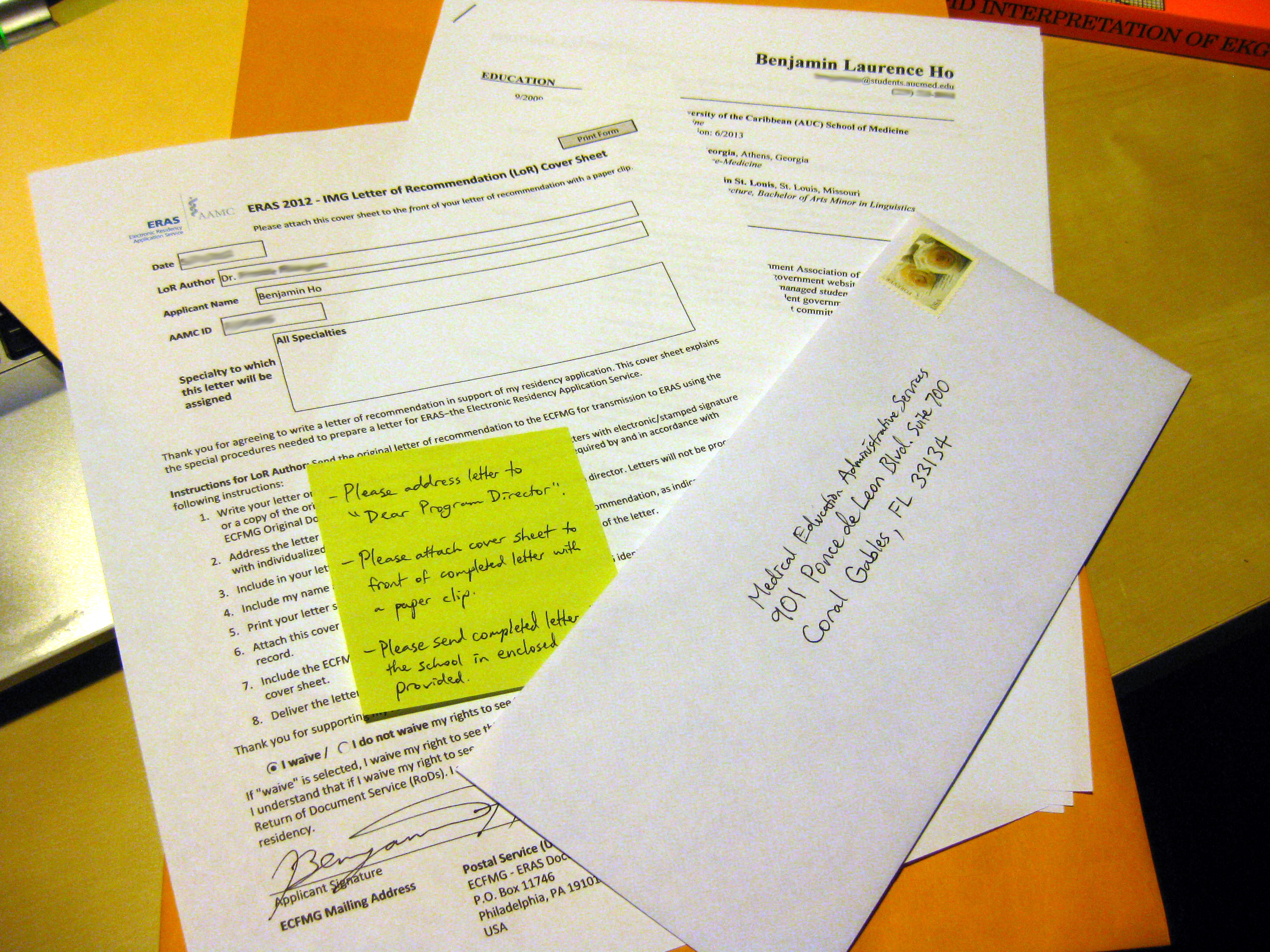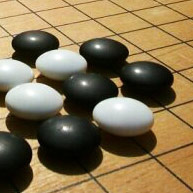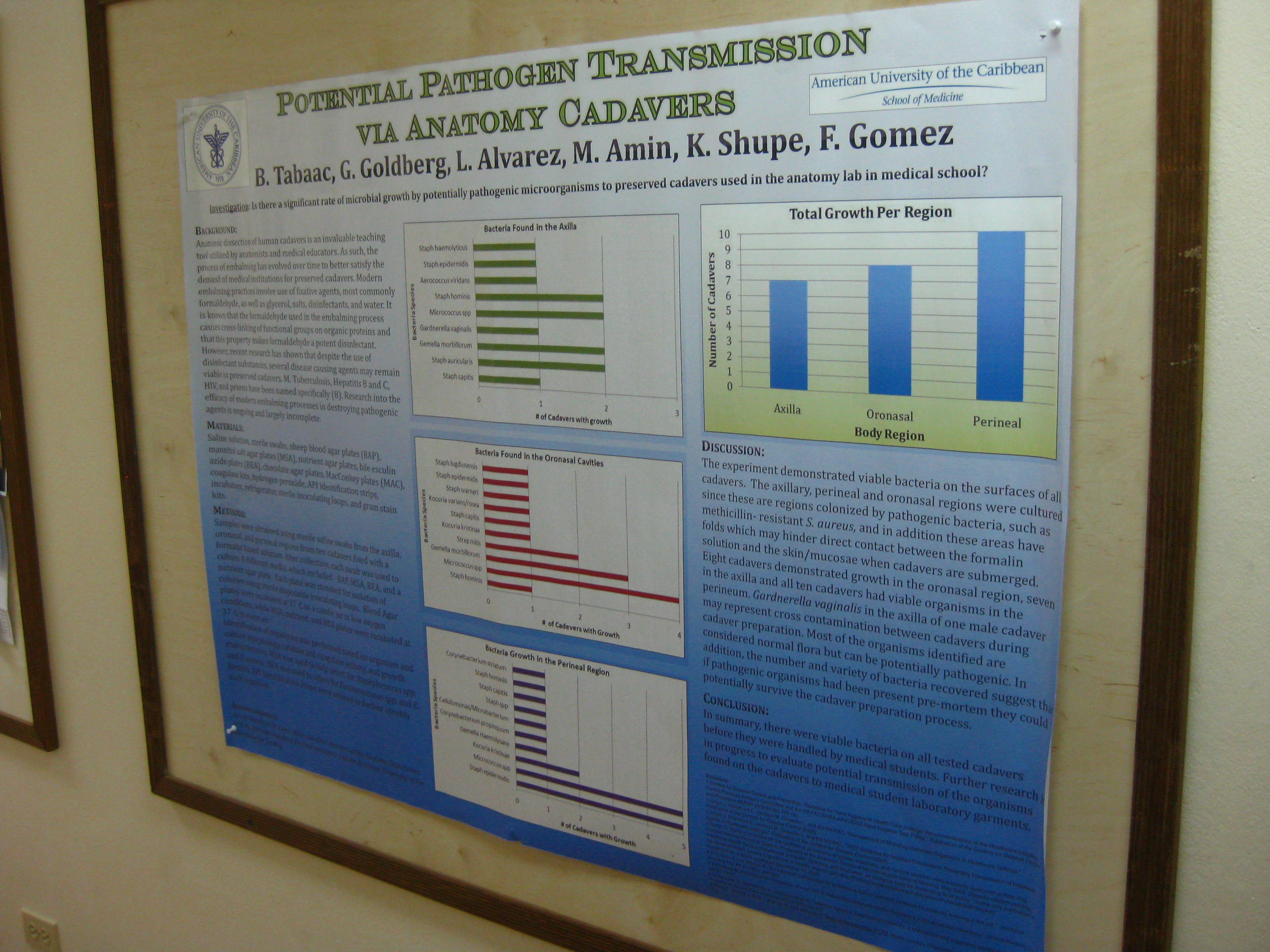How to Improve Your MSPE Letter
 The Medical Student Performance Evaluation (MSPE), formerly known as the “Dean’s Letter,” is a major component to your residency application. As its name suggests, it is a multiple page evaluation of your performance during all four years of medical school, including the good and the bad. It is put together by the school and sent to all the residency programs you apply to. While not a letter of recommendation per se, it does include a section called “Unique Characteristics” that objectively summarizes any awards, recognition, research, leadership, community service, achievements, involvements, and other “unique” characteristics” you may possess or have done during medical school, written like a letter of recommendation (minus the adjectives) and signed by the school’s Executive Dean.
The Medical Student Performance Evaluation (MSPE), formerly known as the “Dean’s Letter,” is a major component to your residency application. As its name suggests, it is a multiple page evaluation of your performance during all four years of medical school, including the good and the bad. It is put together by the school and sent to all the residency programs you apply to. While not a letter of recommendation per se, it does include a section called “Unique Characteristics” that objectively summarizes any awards, recognition, research, leadership, community service, achievements, involvements, and other “unique” characteristics” you may possess or have done during medical school, written like a letter of recommendation (minus the adjectives) and signed by the school’s Executive Dean.
The Unique Characteristics statement highlights only the things you’ve accomplished during med school, not before. If you’ve done lots of good things while in med school, the Unique Characteristics statement will make you sound amazing and stand out to residency programs. It can show programs an additional side of you, especially if your scores are mediocre or low. On the other hand, if you haven’t done a lot of things in med school, then it can make you look less impressive, despite having good scores. In fact, some residency programs don’t even send out interview invitations until schools release the MSPE letter to them (which are sent 15 days after the ERAS application), so that they can see your whole application and decide whether or not they are interested in you. Because of this reason, it is important to start thinking about how to build up your MSPE from the moment you enter medical school.
During Basic Science on campus, you’ll have the most opportunities to get involved in extracurricular activities and receive recognition that will help build up your “unique characteristics.” Don’t just join clubs. Do things that are worthwhile that contribute positively to the community, especially if it is medically or academically related. Run for a leadership position. Participate in free HIV and diabetes screenings on the island. Raise money for ICAN. Organize a medical mission trip. Invite a guest speaker to come talk to students about a certain medical topic. Become a tutor or Anatomy TA. Be an orientation advisor. Be a student evaluator for prospective faculty. Make it to Dean’s List. Become fluent in multiple languages. All of these can go onto the Unique Characterisics statement of your MSPE.
While not impossible, it is more difficult to get involved in extracurriculars during clinicals, especially without campus organizations readily available. During clinicals, I have known some students that get involved in research with their attendings, present posters, give talks at conferences, or do volunteer work outside of their rotations. Make sure you document everything that you do during all four years of med school in a Curriculum Vitae, complete with detailed descriptions of your tasks and accomplishments. This will help you remember what you’ve done so that you can fill out the MSPE questionaire to send to AUC so that they can help you write the Unique Characteristics statement during your fourth year.
What is included in the MSPE:
- Unique Characteristics statement from the Dean, written in prose.
- Medical Education Summary: Med school start date, Graduation date, whether or not you are a transfer student, repeated coursework, academic probation, dismissals or reinstatements, leave of absences, GPA, Step 1 score, Step 2 score, ECFMG certification status.
- How many semesters it took you to finish Basic Sciences.
- Class rank from Basic Sciences. There is no class rank for Clinical Sciences.
- Evaluations and comments from all of your core and elective rotations. Therefore, do well on all of your rotations, not just in the specialty you’re interested in. Bad comments (or no comments) from your attendings can cost you. Therefore if you disagree with what your attendng wrote about you, resolve the issue directly with him/her before you leave your rotation. Once your rotation evaluation is sent to AUC, there is no way to change it, and it will show up on your MSPE letter.
- Grades from your Basic Sciences classes (Honor/Pass/Fail)
- How you compare with your class on all of your Basic Science classes and clinical rotations. Programs will not only see whether you passed, failed, or honored, but also what percentage of the rest of the class also passed, failed, or honored. Therefore honoring Med Ethics (where majority of students honor) may not be as significant as honoring Neuroscience (only handful of students honor).
What is not included in the MSPE:
- Shelf exam scores, or if you had to repeat any shelf exams.
- Comp exam results.
- Numerical grades for your Basic Science courses (even though your overall Basic Science GPA is included).
Sample MSPE
Disclaimer: This is a sample MSPE that I made up. It is not based on any particular person I know. Mainly, it’s just to give you an idea of what kind of things a MSPE letter contains.
MEDICAL STUDENT PERFORMANCE EVALUATION
John Doe
ECFMG ID# 1-234-567-8, AAMC# 12345678UNIQUE CHARACTERISTICS
As a student at the American University of the Caribbean School of Medicine, Mr. Doe was involved in many aspects of the university community. He was elected by his classmates to serve as the Student Government Association class representative for his first semester class, acting as an intermediary between his class, professors, and school administrators. During his term, he organized 3 fundraising events that helped fund community service and Interactive Case Studies lectures. Mr. Doe also volunteered as an Orientation Advisor, helping incoming students settle into medical school and to life on St. Maarten.
Because of his academic performance in anatomy, Mr. Doe was selected by faculty to serve as a Teaching Assistant for Anatomy. His responsibilities included guiding students in dissections, preparing mock exams, and teaching students to read radiographs. He was awarded Teaching Assistant of the Semester by the Department of Anatomy for his dedication to teaching. He was also on the Dean’s List for 2 semesters.
Mr. Doe was chosen to represent the student body during a visit by the ACCM accrediting body as well as serve as a student evaluator for prospective faculty members. Every semester, he also participated in HIV awareness and screening events with the St. Maarten AIDS Foundation.
Mr. Doe is an active member of the Latino Medical Students Association, and led a workshop on medical Spanish at the LMSA 5th Annual Southeast Regional Conference. Mr. Doe is fluent in English, Spanish, and Quechua.
We are pleased to recommend Mr. Doe for post-graduate training.
Sincerely,
Frank Netter, M.D.
Executive Dean and Chief Academic OfficerACADEMIC HISTORY
AUC Medical Education Summary
Start Date: September 2010
Graduation Date: May 2014
Transfer Student: No
Repeated Course Work: No
Academic Probation: No
Dismissed & Reinstated: No
Leave(s) of Absence: None
Repeated Coursework: None
GPA: 84.80
USMLE I: 220
USMLE II: 230
ECFMG Certificate: PendingACADEMIC PROGRESS
Preclinical/Basic Sciences Curriculum:
John Doe completed Basic Medical Sciences in 5 semesters with a class rank of 30 out of 85 students.
Core Clerkships and Elective Rotations:
Clerkship: Psychiatry Core, 1/16/13 – 2/24/13, General Medical Center, City, State
Evaluator: Dr. Sigmund Freud
Evaluation: Superior
Comments: “John did excellent on his rotation. He is diligent, enthusiastic, and a quick learner. All the faculty and residents that worked with John had good things to say about him. He will make a fine physician one day in any specialty.”Clerkship: Surgery Core, 4/9/13-6/29/12, General Medical Center, City, State
Evaluator: Dr. Henry Gray
Evaluation: Above Average
Comments: “John is an excellent student who has a lot of potential. His skills and knowledge has improved quite a lot during the rotation and is always eager to learn. It was a pleasure having him on our service.”…
APPENDIX
[charts that show comparative performance in coursework]
Links for Residency Interview and Match
- How to Apply for Residency
- How to Improve your MSPE Letter
- Most IMG-Friendly States
- How to Prepare for Residency Application Season
- How Many Residency Programs to Apply to?
- Questions Asked During a Residency Interview
- Dos and Don’ts of Residency Application and Interview
- How to Dress for a Residency Interview
- Following Up After a Residency Interview
- Tips on Ranking Residency Programs














Hi Benji,
Thanks for all of your helpful information! I know you mentioned there is no class rank for clinical sciences; however, are your scores in clinical sciences included in your overall GPA? For example, does the GPA documented on your MSPE only reflect your overall medical sciences GPA? Thanks!
Hi Anika, yes, your class rank and GPA only reflect your medical science performance, not your clinical science. That’s because you don’t get a numerical score for your clinical science rotations. You only get pass/fail/honor.